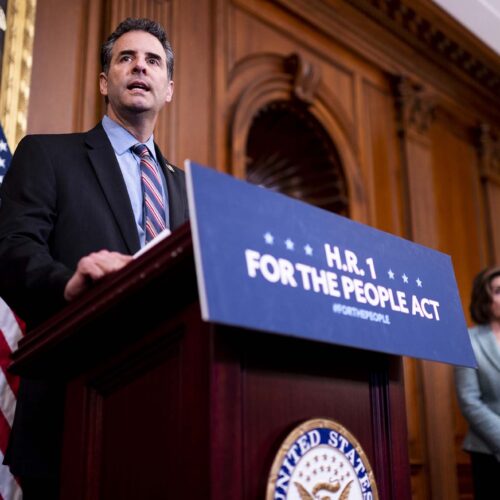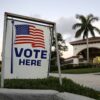Introduction
A sweeping package of voting-rights, government-ethics and anti-corruption measures failed to make it through Congress in 2019, but an updated version of the bill is at the top of Democrats’ agenda.
Proponents say the aftermath of the 2020 election and last week’s violent attack on the U.S. Capitol makes the need for the legislation more urgent. “If anything, I think the imperative for democracy reform has only grown since 2019,” said Rep. John Sarbanes, D-Maryland, the bill’s sponsor. The legislation “responds directly to this moment when we need to strengthen our democracy.”
The 2020 election brought new attention and endless second-guessing to the patchwork of laws and rules governing vote by mail and other key features of elections. Proponents of the bill known colloquially as H.R. 1 — which incorporates voting rights legislation introduced by the late Rep. John Lewis, a Georgia Democrat and civil rights leader — say it would standardize aspects of federal elections and voter registration and increase access to the ballot. The bill would, among other things, create national no-excuse absentee voting and restore the right to vote in federal elections for people with felony convictions who have completed their sentences.
Known formally as the For the People Act, the bill also contains a series of provisions dealing with campaign finance and ethics, such as creating a small-dollar donor matching program to fund elections, instituting new requirements for disclosure of those behind online political ads, and proposals meant to address Trump administration-era scandals.
This time, with Democrats in control of both houses of Congress and the White House, and given that the bill already ran the gamut of legislative hearings and markups during the last Congress, reform and watchdog groups that support the legislation are hopeful it will become law. They expect it will pass the House within the first 100 days of the new Congress. Final passage still may not be easy because Democrats don’t have enough votes to overcome a filibuster in the Senate.
“While neither party will have 60 seats in the Senate any time soon, there are a number of options being considered to get his bill across the finish line,” said Aaron Scherb, director of legislative affairs for the watchdog nonprofit group Common Cause, which supports the bill.
H.R. 1 would commit Congress to building a legislative record proponents say would be necessary to document the need to restore preclearance requirements in the Voting Rights Act that were struck down by the Supreme Court in the 2013 Shelby v. Holder case. Separate legislation is pending to restore the Voting Rights Act, and Sarbanes and other proponents said such a record, documenting the need for preclearance of changes that affect voting, would be essential in the event of another court case challenging the requirements.
Read more in Money and Democracy
Barriers to the Ballot Box
Georgia Republicans want to reshape voting laws, burdening voters of color
Bills would eliminate options local officials used to make voting easier. A close look at two counties shows how it could play out.




Join the conversation
Show Comments